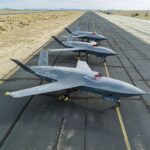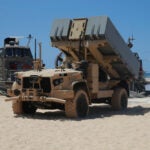
California-based EpiSys Science, Inc.'s (EpiSci) collaborative autonomy linking networked weapons was the "best in class" during the Golden Horde Colosseum demonstration, the Defense Innovation Unit (DIU) said in its fiscal 2023 annual report this month. Golden Horde began in 2020 as an Air Force Vanguard program under Air Force Research Laboratory, but moved to virtual, competitive Colosseum testing in September 2021 with a view to fielding swarms of networked, collaborative, semi-autonomous weapons operating from a "playbook" with Rules of Engagement…














